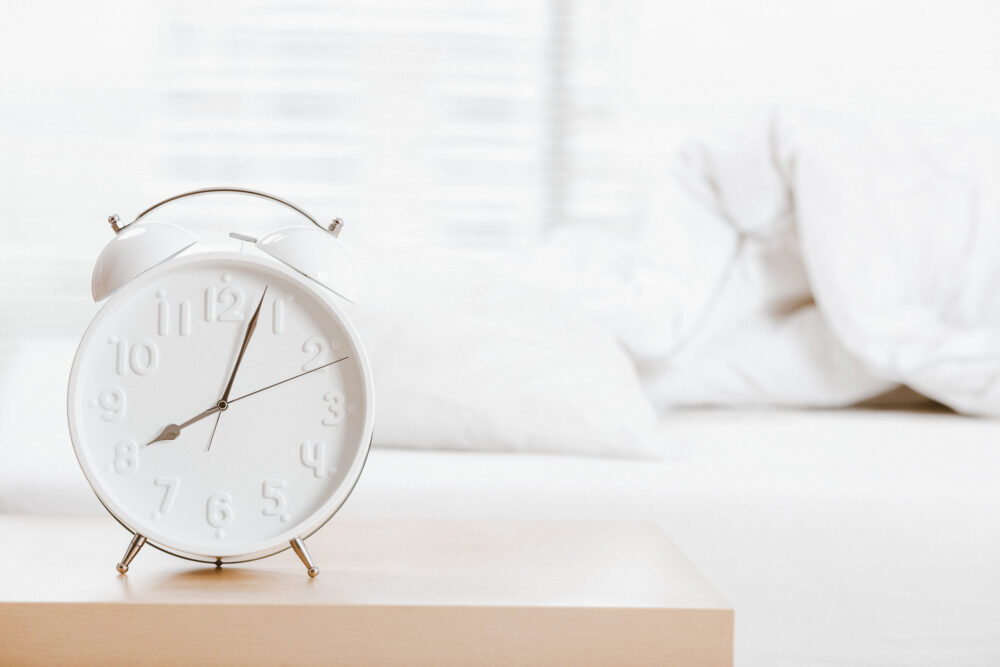Our Favorite Bedtime Snacks to Help You Sleep
Find Your Chronotype & Improve Your Sleep
Did you know that you have a general timing of your body clock? This is called your chronotype. Recognizing your chronotype when it comes to your sleep schedule is really crucial to improving your quality of sleep.

We’ve all heard of a biological clock or a circadian rhythm – which is basically the internal process that controls how alert and how sleepy you are in a 24-hour period. This circadian rhythm is impacted a lot by light and dark, but it’s also handed down to your from one of your parents – and then, in turn, you hand it down to your kids. Are you perhaps a really early riser? And you also find that your child is a really early riser? There’s a reason for that. Your chronotype is inherited from one of your parents – and we are likely handing it down to our children.
Well, why does all of this matter? Our body clocks differ from one person to the next. That means when you should be sleeping, might vary from when someone else should be sleeping. If you want to improve your sleep – line up your bedtime with one that best matches your chronotype. Let’s dive into the 3 different chronotypes!
Hummingbirds
Hummingbirds are what society would consider a “normal” chronotype. These are the people who pretty easily stay in sync with the day and night cycle. They are usually ready for bed around 11:00 PM and tend to wake up naturally around 7:00 AM. For most of the day, you feel pretty good. You probably will experience small times of tiredness, usually around 10 and again around 2 or 3 in the afternoon.
Larks
Larks are the early birds. These are people who get a bright and early start, usually between 4 and 6:00 AM. If you are a lark, you probably find that you do not have a lot of stamina and that you fizzle out early in the evening. For some parents that have tried everything to get their child to sleep later in the morning to no avail, they may have a child with a lark chronotype on their hands. This may not bode well if you happen to be a night owl (more on that later)!
Owls
Finally, you have your owl, or your night owl. If this is you, you probably find that you naturally like to stay up late, not going to bed until midnight or 1 am. The alarm going off at 6 am would be really hard for you. You would much rather sleep til 8 or 9 in the morning. You might struggle with sleep more than others because you try to go to bed early and get up early – yet it’s just a struggle. You often wonder if it’s hopeless because you cannot sleep until 9 in the morning if you have a job with specific hours – or have small children. So, each morning, you drag yourself out of bed. Once the afternoon rolls around, however, you have an energy spike and you can get things done.
Use Your Chronotype to Your Advantage
If you’re still not sure which chronotype you are, take our free quiz! Once you determine your chronotype – it’s time for step 2: Shifting your lifestyle to match your chronotype. It can be easier said than done, but here are two tips:
- Adjust your day to ensure you have a bedtime as close to what your body clock needs as possible. Do you have flexibility in your work schedule? Can you take naps? Can your partner take the early morning hours with the kids and you take the later evening hours?

- If your schedule requires you to wake up earlier in the morning (and earlier than your chronotype wants!), you’re going to want to get extra exposure to sunlight right away. First thing in the morning, get outside or sit by a bright window to let the sun hit your skin. That’s going to be the fastest, most effective way to shift your body clock to where you need to be.
Chronotypes can give us really great information to help set ourselves up for success when it comes to our sleep. Make sure to determine yours so you can make some small easy changes to improve your sleep! If you’d like to learn more about how our Sleep Coaches can help you reach your goals, book a free evaluation call with one of our experts.


